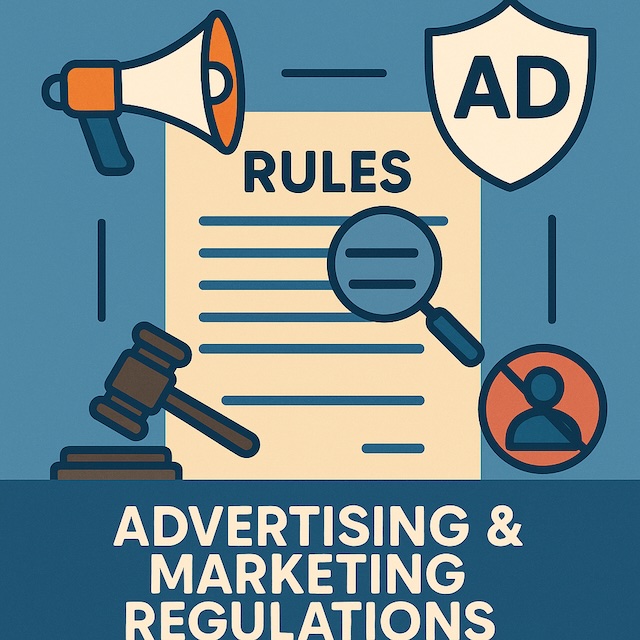Why Marketing Compliance Matters
Creative marketing drives sales, but in the U.S., advertising is heavily regulated. The Federal Trade Commission (FTC)enforces strict rules against deceptive or misleading practices — and penalties can be severe, even for small businesses.
Truth-in-Advertising: FTC’s Core Rule
- Claims must be truthful and not misleading. If you say a product “cures acne,” you must have proof.
- Claims must be substantiated. Businesses must hold evidence before making health, environmental, or performance claims.
- Comparisons must be fair. You can’t misrepresent competitors’ products to promote your own.
Example: Several supplement companies have faced multimillion-dollar fines for “miracle cure” claims without medical evidence.
Influencer & Social Media Rules
If you work with influencers or post on social platforms:
- Influencers must clearly disclose sponsored content using “#ad” or “#sponsored.”
- Disclosures must be clear and conspicuous — no hiding it in hashtags or links.
- Businesses are responsible for ensuring influencers comply.
Email Marketing & CAN-SPAM Compliance
The CAN-SPAM Act sets rules for marketing emails:
- Don’t use deceptive subject lines or headers.
- Include your business’s physical address.
- Provide a clear, working unsubscribe option.
- Honor opt-out requests promptly.
Violations can cost up to $46,000 per email in fines.
Avoiding Dark Patterns
The FTC increasingly targets manipulative design tactics such as:
- Hiding unsubscribe buttons.
- Auto-adding products to carts.
- Fake scarcity messages (“Only 1 left!” when stock is full).
Key Takeaways
- Honesty and transparency are legal requirements in U.S. marketing.
- Influencer partnerships must include proper disclosures.
- CAN-SPAM compliance is essential for email marketing.
Action Step: Audit your marketing campaigns (ads, emails, influencer posts). Ask: Would the FTC consider this clear, honest, and not misleading?
If you want to read more about advertising & marketing regulations, please see Recommended Books.





